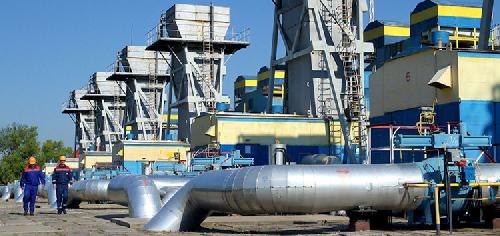It is widely accepted that Russian gas plays an important role in the European energy market. Last year, 39 percent of gas imported to the EU was of Russian provenience, i.e. 27 percent of its annual consumption. Ukraine – an important but highly uncertain partner – is of fundamental importance for the transit of this gas. Dr. Chi Kong Chyong argues in his study recently published by European Council on Foreign Relations that to understand this phenomenon, it is necessary appreciate the paramount role that gas plays in Ukrainian politics and economics. Even a quarter of a century after the collapse of the Soviet Union, Ukraine’s economy is based on the manufacture of products with low added value (raw materials, steel, fertilizers etc.). Especially steel and chemical industries are extremely sensitive to the price of gas, which represents up to 15 percent of the total Ukrainian import costs.
Restructuring its inefficient economy would have been the most convenient solution for Ukraine in the past. Instead, the country adopted the bargaining position of a kind of mediator between the Russian suppliers and consumers in Western Europe. Between 1991 and 2000, approximately 93 percent of Russian export gas to Europe passed through Ukraine. This was also the prime reason why Russia gained considerable leverage in the Ukrainian economy and politics.
Although the situation has undergone a shift after 2000, the most important changes were not made until quite recently. As a result of this year’s turbulent events, the interruption in supplies of Russian gas to Ukraine occurred in mid-June. Gazprom has insisted on repayment of Ukrainian debts and prepayment of new supplies. On the other hand, the Kiev government has refused to accept new, much higher gas prices. But there are ways for the government in Kiev to solve this unfavorable situation.
Kiev should, for example, consider using their own, relatively large gas reserves (including unconventional shale gas), which are not currently exploited to their full capacity. Another project, though a challenging one, would be building LNG terminals for liquefied natural gas (LNG) imported by sea, or using reverse gas flows from the West. Ukraine should further focus on tackling the very inefficient use of gas in both the industry and the households. Liberalizing the domestic gas market and increasing the disproportionately low customer prices appears to be yet another necessary step. Any future financial support for Ukraine by international institutions (IMF, WB) and the European Union should be directly conditioned upon a successful implementation of such steps.
Any further steps undertaken by Ukraine towards the reform of its gas market could have far-reaching geopolitical implications. For example, they would reduce the possibility of Russia’s economic pressure on Ukraine through its gas export policy. The introduction of free energy market in Ukraine would moreover depoliticize its energy trade, minimize the risk of the state power being subject to corruptive practices and thus increase Ukraine’s ability to pursue independent economic and foreign policies.




